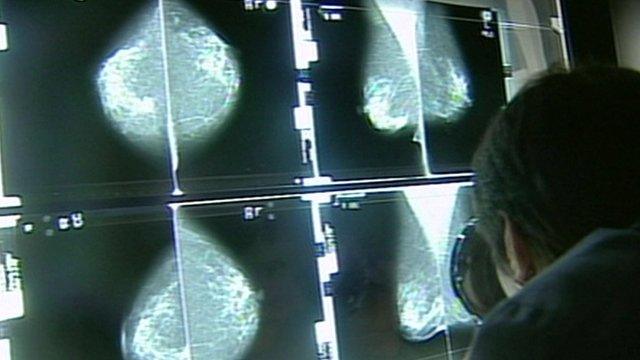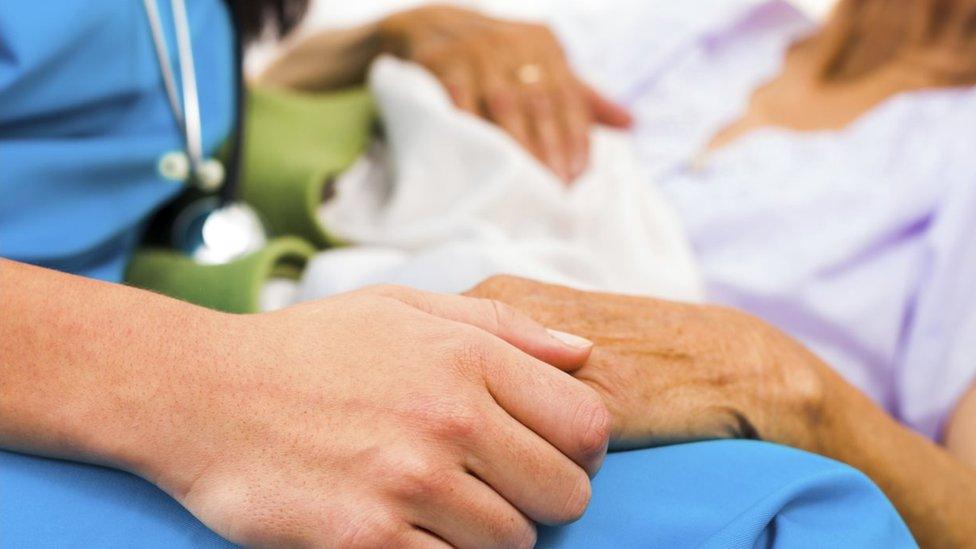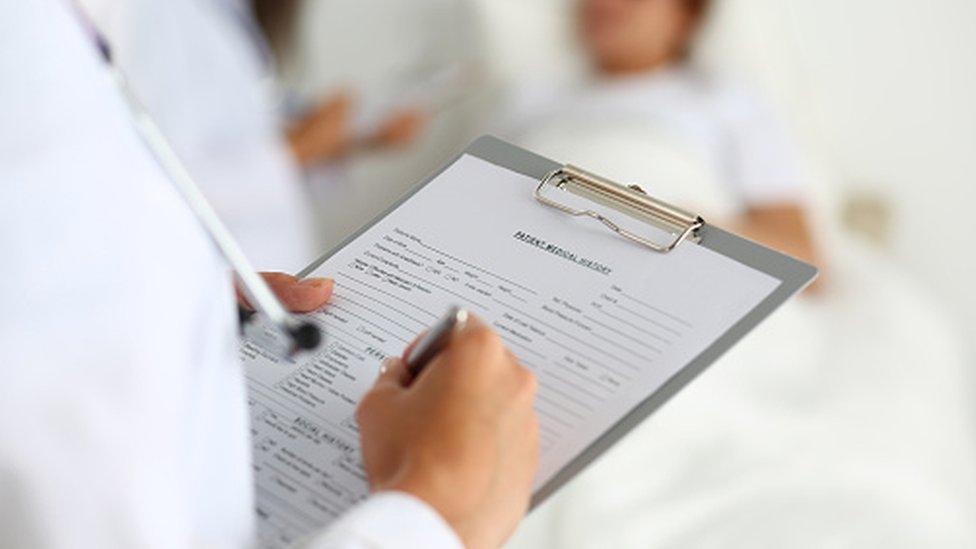Cancer death rates down by 10% in 10 years
- Published

The cancer death rate for men fell by 12% and for women 8% between 2003 and 2013
Cancer death rates in the UK have fallen by about 10% in the past 10 years, the latest figures show.
In 2013, 284 out of every 100,000 people died from cancer. In 2003, it was 312. Improvements in diagnosis and treatment are thought to be the reason.
The death rate for men fell 12% and for women by 8%, narrowing the gender gap.
But the actual number of cancer deaths rose - from 155,000 in 2003 to 162,000 in 2013 - as more people live longer and develop the disease in old age.
"The population is growing, and more of us are living longer," Cancer Research UK chief executive Sir Harpal Kumar said.
Almost half of all the cancer deaths in 2013 were from lung, bowel, breast or prostate cancer.
Although the combined death rate for these four cancers had dropped by about 11% over the past 10 years, some other cancers, such as liver and pancreatic, had increased death rates.
Sir Harpal said: "Too many people are still being diagnosed with and dying from cancer, not just here in the UK but around the world."
He said CRUK was focusing research on how to achieve earlier diagnosis and manage hard-to-treat cancers.
"Our scientists are developing new tests, surgical and radiotherapy techniques, and drugs," he said.
"It's important to celebrate how much things have improved, but also to renew our commitment to saving the lives of more cancer patients."
Cancer Research UK compiled the cancer death rate data, which was taken from cancer registries in England, Wales, Scotland and Northern Ireland.
- Published4 February 2016

- Published17 November 2015

- Published27 January 2016

- Published18 July 2015